Table of Contents
ToggleFull Text of the 13th Amendment to the US Constitution
Section 1: Neither slavery nor involuntary servitude, except as a punishment for crime whereof the party shall have been duly convicted, shall exist within the United States, or any place subject to their jurisdiction.
Section 2: Congress shall have power to enforce this article by appropriate legislation.
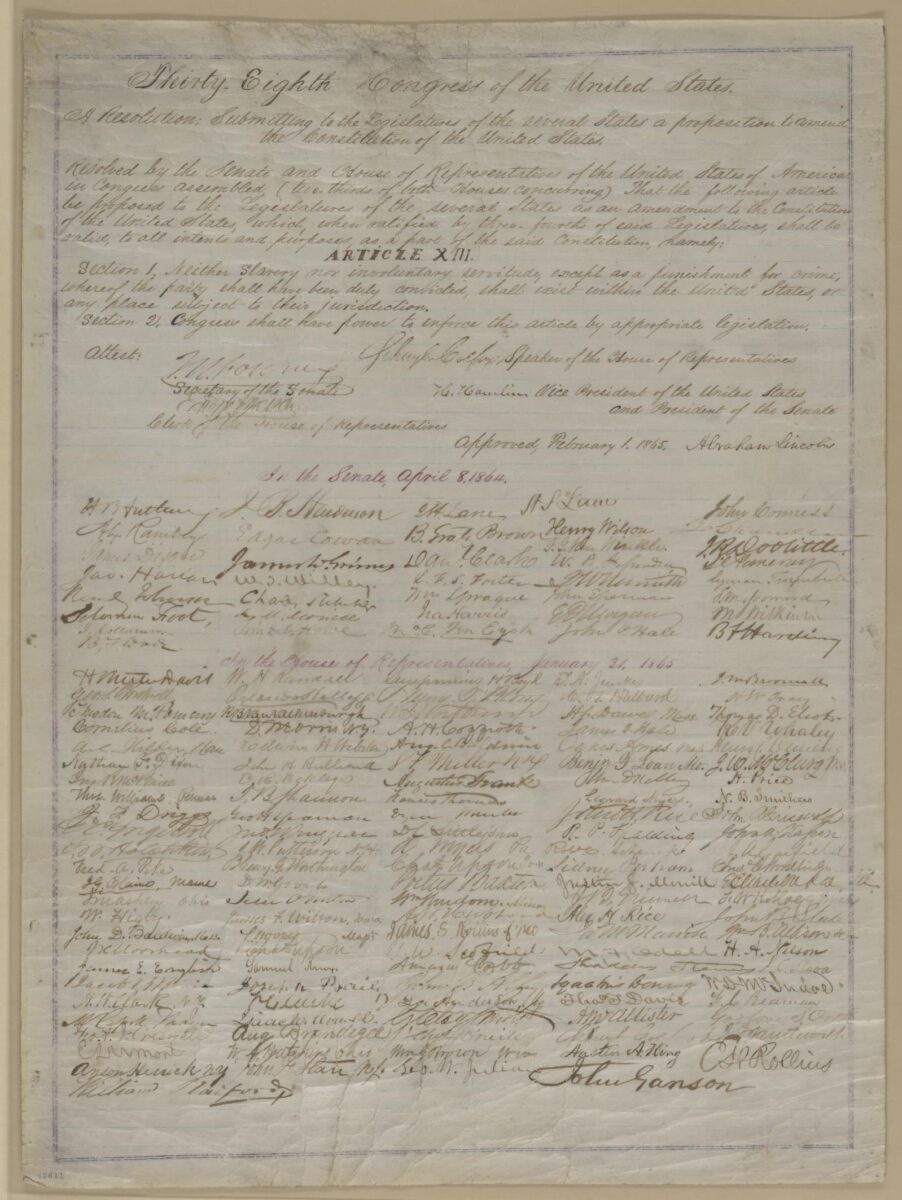
What Was the 13th Amendment?
The 13th Amendment was ratified on December 6, 1865, and effectively abolished slavery and involuntary servitude in the United States. It ranks as the first of three Reconstruction Amendments in the wake of the American Civil War.
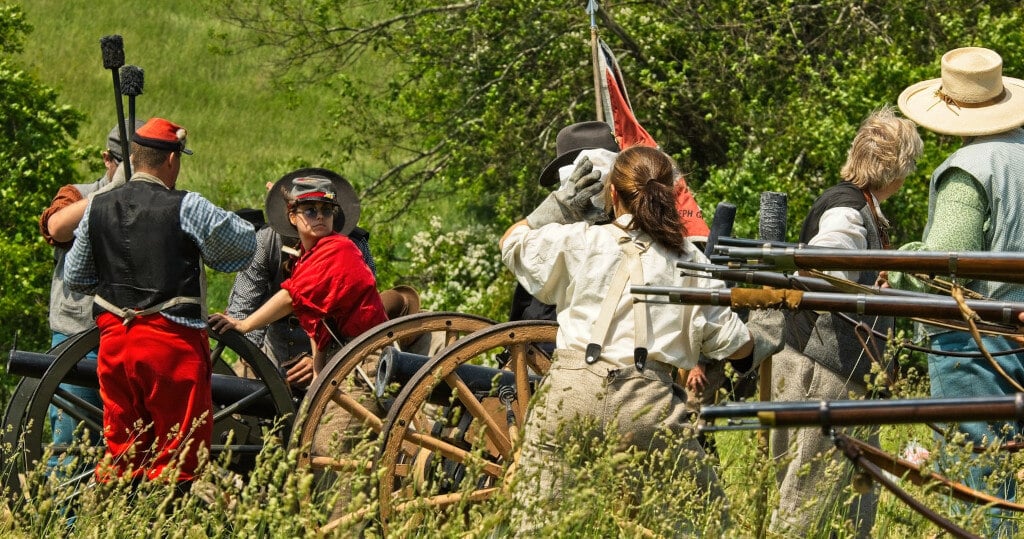
What are the Reconstruction Amendments?
The Reconstruction Amendments are three changes to the U.S. Constitution made after the Civil War to give rights to formerly enslaved people.
13th Amendment (1865): Ended slavery in the United States.
14th Amendment (1868): Made everyone born or naturalized in the U.S. a citizen and guaranteed equal protection under the law.
15th Amendment (1870): Gave Black men the right to vote by banning racial discrimination in voting.
Together, these amendments aimed to rebuild the country after the Civil War and ensure freedom and equality for all citizens.
Historical Background of the 13th Amendment
Slavery had been present in the American colonies before independence. There had been domestic slaves in the northern colonies, but the southern colonies used slaves to work on plantations and domestically.
The United States Constitution did not refer to slaves but did use the term ‘unfree persons.’
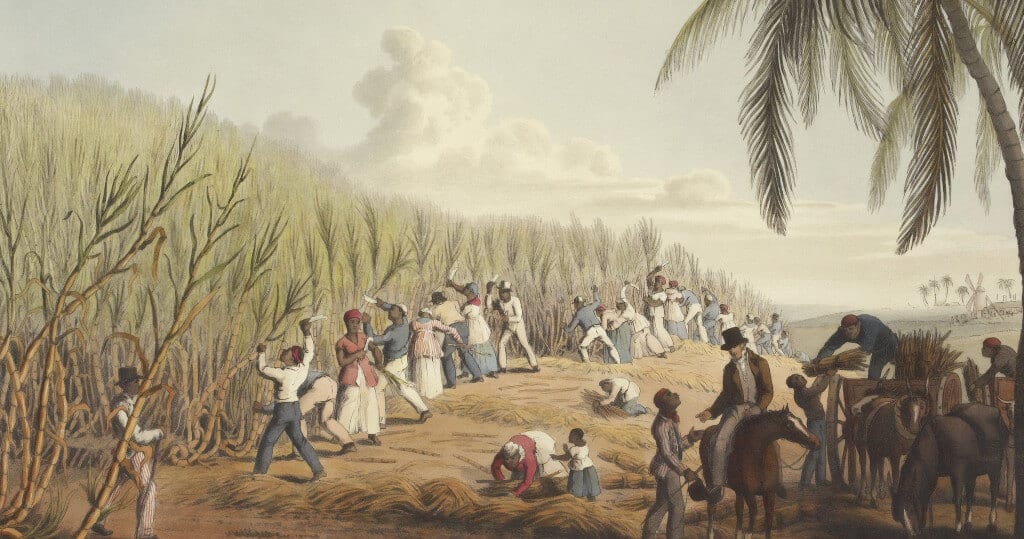
Slaves were legally regarded as property and could be legally bought and sold. In the Southern states, the slave population grew over the first half of the nineteenth century, and there were around 4 million by 1861.
Growing opposition to slavery
In the North, abolitionists reflected a growing mood opposing slavery. This happened when the United States government was expanding its territories westward at a rapid rate.
This expansion begged the question of whether slavery was going to be allowed in the new territories being populated by pioneers across the Midwest.

The Mexican-American War brought new territory under US control, and action was needed to prevent conflict over the slavery issue.
California entered the Union as a slavery-free state, as did Maine. Missouri was allowed to join as a slave state, but all the territory acquired from Mexico was left in limbo.
Eventually, they were allowed to decide for themselves. Slave ownership and trade were forbidden in Washington, DC. Tensions between North and South rose regardless of attempts to defuse the situation.
The Role of President Abraham Lincoln and the Civil War
In 1860, President Abraham Lincoln, a critic of slavery, brought matters to a head. In the months after his election, the Southern states seceded and formed the Confederate States of America. The American Civil War between the North and South ensued.

In 1862, President Lincoln issued the Emancipation Proclamation, which banned slavery in the Confederate states.
Another proclamation followed, offering amnesty to those Southern states that abolished slavery and peacefully re-joined the Union. There were no takers.
Passing the 13th Amendment
Over the next two years, various proposals for a Constitutional Amendment were made, but none were acceptable.
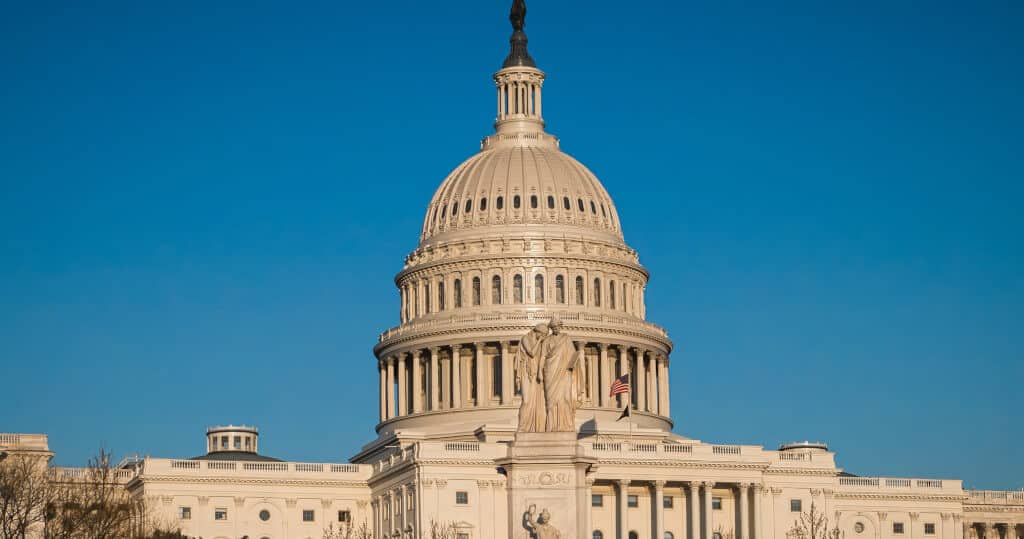
Lincoln won re-election in 1864 and made the passage of the 13th Amendment his top priority. It passed Congress and was sent to the states for ratification in February 1865.
Twenty-seven states were required to ratify the amendment for it to be passed. At the time, there were 36 states, and the Northern states were quick to ratify the amendment.

Get Smarter on US News, History, and the Constitution
Join the thousands of fellow patriots who rely on our 5-minute newsletter to stay informed on the key events and trends that shaped our nation's past and continue to shape its present.

The 27th state to ratify was Georgia in December, which enabled the amendment to be adopted. The last of the 36 states to ratify the amendment was Mississippi, which did so in 1995.
The Abolition Amendment and the Road to Equality
The 13th Amendment was quite straightforward in its abolition of slavery and the slave trade. It was a milestone along the road to equal rights for every African American.

Unfortunately, there were many other ways in which former slaves and black people generally could be kept in servitude. It took another century before the Civil Rights movement could progress on this issue.
Even today, the Black Lives Matter movement is still pressing for equal rights for black Americans and outlawing the unnecessary use of violence against them.
Further Resources about the 13th Amendment:
- https://www.archives.gov/historical-docs/13th-amendment
The National Archives provides the original text of the 13th Amendment, along with historical context and ratification details. - https://www.history.com/articles/thirteenth-amendment
History.com offers a comprehensive overview of the 13th Amendment, including its historical background, the role of Abraham Lincoln, and its impact on American society. - https://guides.loc.gov/sb.php?subject_id=162830
The Library of Congress provides primary sources and detailed historical information about the 13th Amendment, including its passage and ratification process. - https://www.britannica.com/topic/Thirteenth-Amendment
Encyclopaedia Britannica offers an in-depth analysis of the 13th Amendment, its significance, and its role in the Reconstruction era, backed by scholarly research.
Explore the 27 Constitutional Amendments
- 1st Amendment
- 2nd Amendment
- 3rd Amendment
- 4th Amendment
- 5th Amendment
- 6th Amendment
- 7th Amendment
- 8th Amendment
- 9th Amendment
- 10th Amendment
- 11th Amendment
- 12th Amendment
- 13th Amendment
- 14th Amendment
- 15th Amendment
- 16th Amendment
- 17th Amendment
- 18th Amendment
- 19th Amendment
- 20th Amendment
- 21st Amendment
- 22nd Amendment
- 23rd Amendment
- 24th Amendment
- 25th Amendment
- 26th Amendment
- 27th Amendment
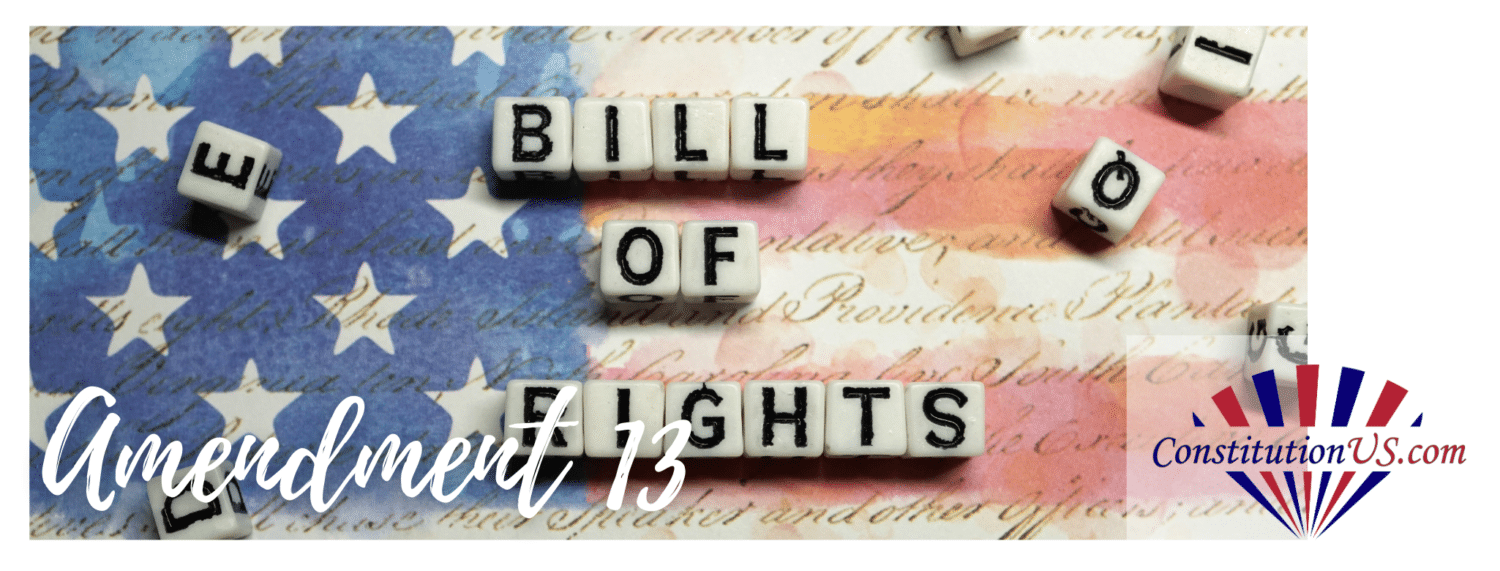









2 Responses
stand up and do what is good for the future!
The MINORITY referred to the INDIVIDUAL!